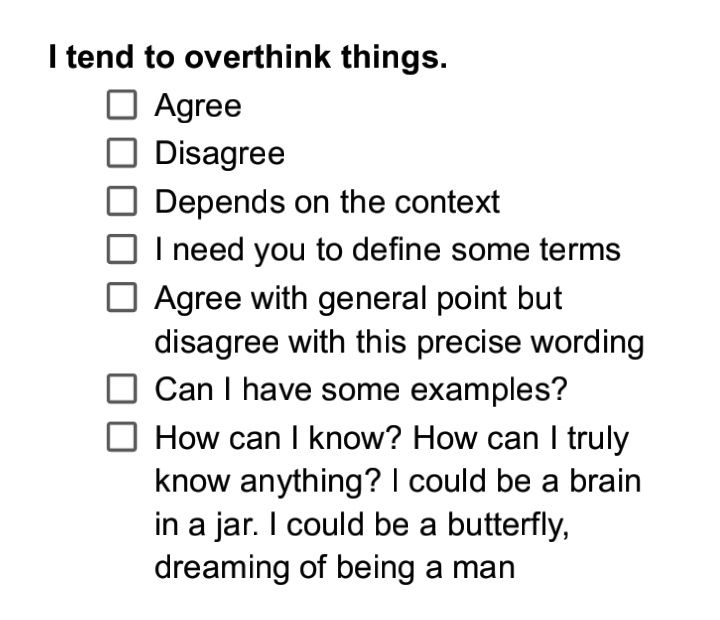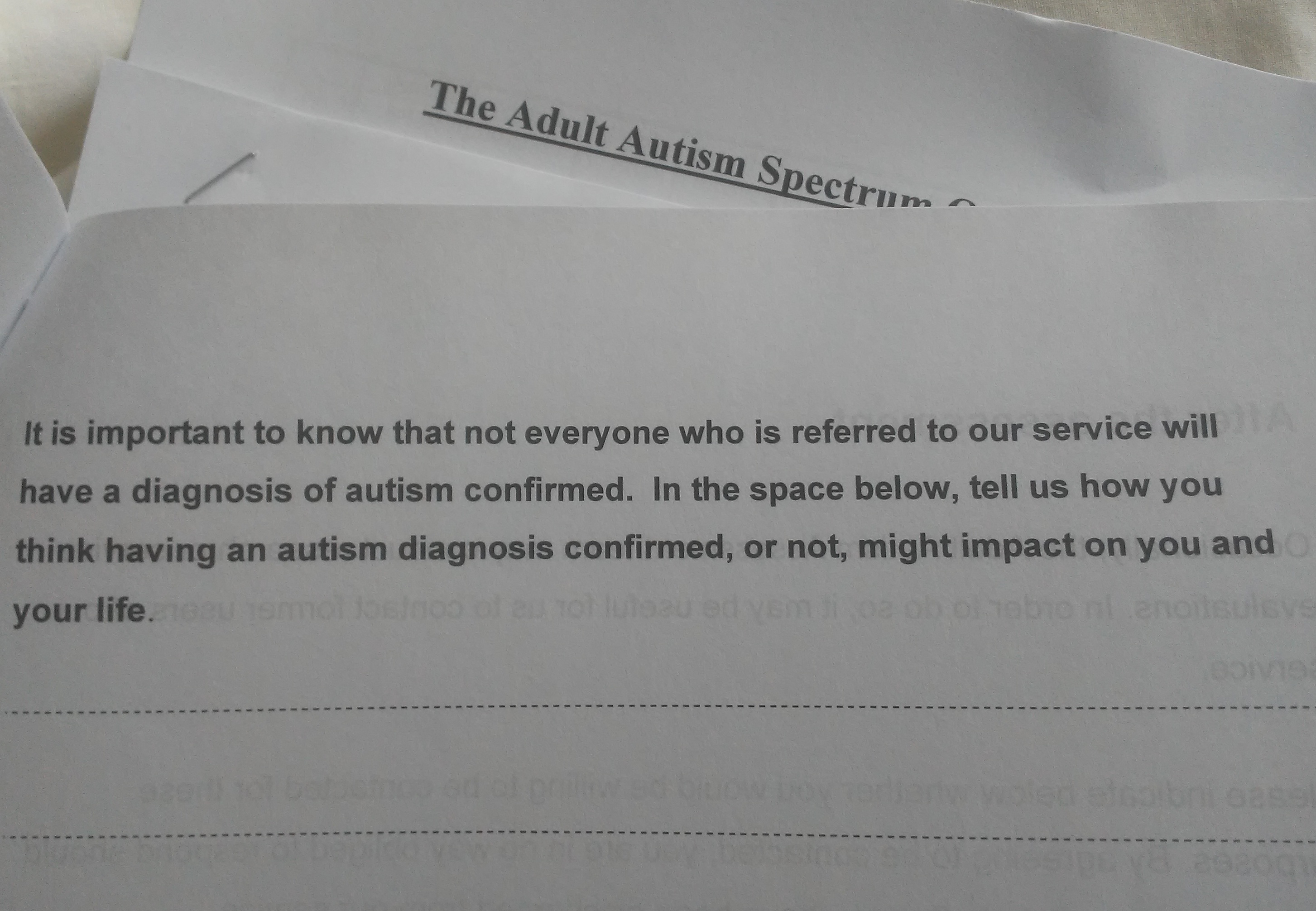Thanks to everybody who took part. Now it's time to see the results. I've counted up everyone's agreements and disagreements (using some amount of reading between the lines. I didn't count any that were unclear). The 'autistic' answer for each statement is indicated with bold type:
| statement | agree | disagree |
|---|---|---|
| I often notice small sounds when others do not. | 23 | 0 |
| When I’m reading a story, I find it difficult to work out the characters’ intentions. | 5 | 1 |
| I find it easy to "read between the lines" when someone is talking to me. | 0 | 6 |
| I usually concentrate more on the whole picture, rather than the small details. | 0 | 4 |
| I know how to tell if someone listening to me is getting bored. | 2 | 4 |
| I find it easy to do more than one thing at once. | 1 | 4 |
| I find it easy to work out what someone is thinking or feeling just by looking at their face. | 1 | 5 |
| If there is an interruption, I can switch back to what I was doing very quickly. | 3 | 4 |
| I like to collect information about categories of things. | 5 | 2 |
| I find it difficult to work out people’s intentions. | 4 | 0 |
So, lemmy.world/autism picked the autistic option every time and scored a perfect 10/10. Interestingly, if we weight it proportionately according to how many picked each option, we only get 6.2, barely over the threshold.
Scores of 6 or over indicate possible autism spectrum disorder, so lemmy.world/autism should seriously consider the possibility that they may be autistic.
(Personally, I got 8. Go me!)
My intentions for running this test was it would be interesting and fun, and I think it was (One respondent was concerned I might have some undisclosed professional interest - I don't, but thanks for looking out for the community). I think the main takeaway is that interpreting self-report questions can be really hard.
Should I do another? If so, should I do anything differently?


How do I even with this question? The whole picture is made up of small details, and the details are all in the context of the whole picture. So it's both. The answer is both and it depends on what the thing is and why you're having to concentrate on it and where you are in that process. Any project you work on will need big picture perspective to decide what things you need to do, and also need detail perspective to do those things. Any field of study will have its overarching themes and its individual examples.
Let's look another way. I know they're not talking about a literal picture (and why use metaphors in an autism test of all things?), but let's pretend they are. When I look at The Hay Wain I see an idyllic rural scene. Then I see the cart, the house, the horsemen, the dog. I see the whole picture first, then I pick out details. When I look at The Persistence of Memory, I see the face, the clock, the tree, the cliff. Then I wonder what it could mean. I see the details, then (try to) assemble a full picture. It depends. It always flipping depends.
If It gave me specifics, I could answer this. But I'm just floundering with this sort of generality. I am leaning towards Slightly Disagree, only because I am crying out for details trying to interpret this question.